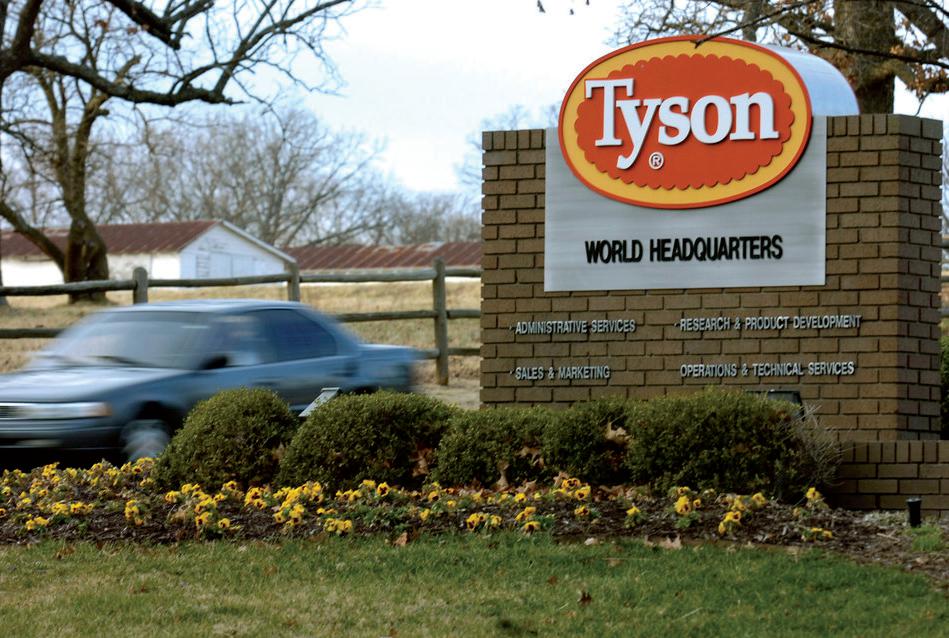Tyson lowers forecast on tariff fallout


Tyson Foods Inc, the largest US-based meat producer, on Monday became the latest American company to warn on 2018 results due to the Trump administration tariffs.
Tyson lowered its earnings projections by 10 percent to 13 percent, citing "uncertainty in trade policies and increased tariffs", Tyson said its earnings will be about $5.70 to $6 a share, compared with a previous view of $6.55 to $6.70. Shares of Tyson fell 7.6 percent to a 52-week low on Monday.
The Springdale, Arkansas-based company said tariffs have hurt domestic and export prices on chicken and pork. Tyson also said domestic chicken demand has weakened because of an abundance of "relatively lower-priced" beef and pork.
Last week General Motors cut its full-year profit forecast, in part due to higher commodity costs as it amplified its warning that mushrooming trade conflicts could dent US and global car sales.
Adjusted earnings will drop to about $6 a share, down from a previous projection for as much as $6.50 a share, GM said.
China and Mexico have imposed import tariffs on American pork recently in retaliation against US duties on metal shipments. The measures have sent hog prices plunging, eroding the profitability at Tyson's pork business. Tyson also said domestic chicken demand has weakened because of an abundance of "relatively lower-priced" beef and pork.
The American farm sector is one of the few areas of the economy that typically operates with a trade surplus, and agriculture groups have sounded off against the trade war's potential toll on exports. Net farm income is poised to reach a 12-year low in 2018, and challenges for meat demand may offset some of the benefits of cheaper feed-grain prices. The Trump administration last week announced a plan to provide $12 billion in assistance to US farmers.
Tyson shares slumped as much as 8.2 percent, the biggest intraday drop since November 2016. Rival poultry producers Pilgrim's Pride Corp and Sanderson Farms Inc, and Hormel Foods Corp, which processes pork, declined.
In a note, Bernstein analyst Alexia Howard points out that pork packer margins have declined to around $15 per hog, from over $26 a year ago. Margins even briefly dipped into negative territory after the Mexican tariffs were announced.
Beef margins are still fat, perhaps because China makes up a smaller portion of the overall market, Howard said. But for the pork industry, lean times will continue until Trump and China settle their differences.
German automaker BMW is increasing the price of some US-made SUVs sold in China to counter tariffs the country is levying on imports amid the escalating US-China trade war.
BMW is increasing the suggested price of its X5 and X6 crossover sport utility vehicles by 4 percent and 7 percent, respectively, in China because of increased tariffs on the imported SUVs built at the BMW plant in Spartanburg, South Carolina.
China levied new tariffs this month on US-made goods after Trump announced $34 billion in new tariffs on Chinese imports.
Two weeks ago, China said it filed a complaint to the World Trade Organization challenging Trump's plan for tariffs on another $200 billion worth of Chinese goods. That import total represents about 40 percent of US imports from China.
bloomberg




































